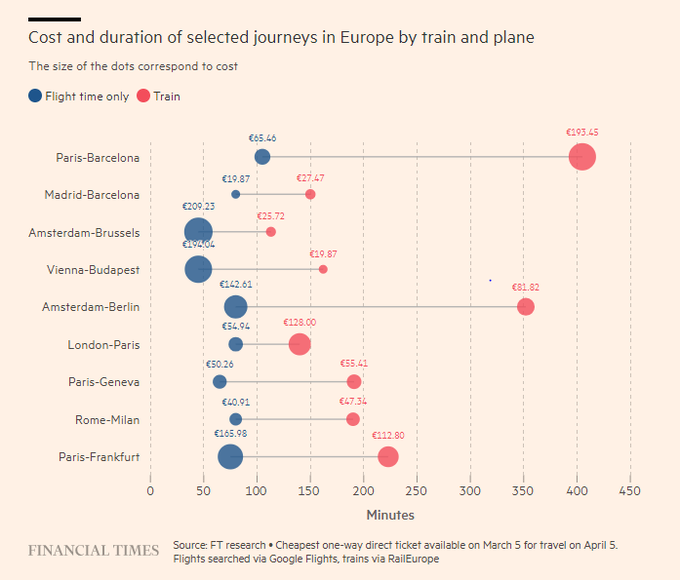According to European travel experts, the drive to ban short-haul flights and adopt train travel will not make air and train travel more affordable.
During OAG’s Trains for Planes seminar on April 17, John Grant, Chief Analyst at OAG, claimed that airfares and train tickets would become more expensive.
The main challenge with increasing train travel capacity is the monopolisation of the European train market, integrating ticket sales among all train service providers, and standardising rail infrastructure across national borders. For this reason, experts believe the transition to train travel may be a bumpy ride.
Demand drives up train fares
Wilco Sweijen, Airline Partnership Director at Amsterdam Schiphol Airport, revealed that travelling by train might become more expensive than travelling by air in Europe over the coming years.
Train ticket prices in Europe are increasing as regular demand for train travel from daily commuters is already occupying the bulk of train operators’ capacity.
According to Sweijen, the ban on short-haul flights will increase the demand for train travel, thus hiking train fares because of a lack of capacity.
The Financial Times illustrates how travel on some of Europe’s popular routes compares across flights and trains from a cost and time perspective:

Airfares will also soar
Grant explained that the aviation industry’s operating costs were increasing as fuel prices rise due to global political tension, and many European airlines are not flying over Russian, Ukrainian and Middle Eastern airspace, lengthening the duration of all eastbound flights.
According to Grant, both airlines and airports currently fear the loss of a loyal corporate market due to the reduction of regional and domestic flights. Nevertheless, he said airlines preferred to operate more international flights than domestic and regional flights as the fuel usage per kilometre dropped over longer distances, making these flights more profitable.
While airport tariffs are determined by whether the aircraft originates domestically, regionally or internationally, other factors such as timeslots, landing and take-off charges, and emission-related charges, among other elements, have a bearing on this final fee, with international tariffs typically being higher.
As such, Grant doesn’t foresee long-haul flights being capped, as airlines and airports rely on these routes for a steady flow of revenue.













